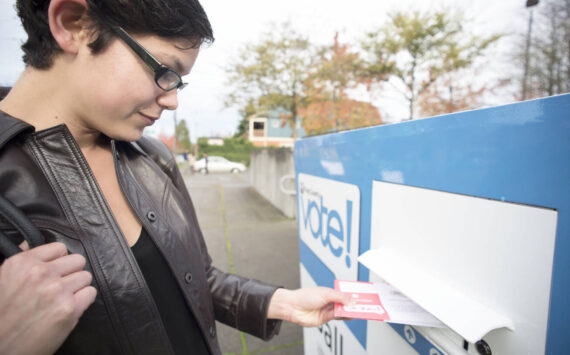Irreconcilable differences seem to have scotched the former love affair between this town’s would-be progressive politicians and the Green Party of Seattle.
Just last year, a parade of Seattle City Council hopefuls dutifully paid their $15 Greens’ membership fee in the last election in hopes of snagging the Greens’ endorsement. But with the Greens running their own candidates for US President and Seattle’s 7th District Congressional seat, currently held by Jim McDermott, most of our dual-membership Council members have rediscovered their Democratic roots. Last week, self-proclaimed “former Green Party members” Judy Nicastro, Richard Conlin, and Heidi Wills were the featured guests at a Westlake Park press conference calling on all progressive voters to back Al Gore’s presidential candidacy.
So Conlin and Nicastro got the benefit of Green Party support in their races (Wills didn’t receive the party’s endorsement), plus the extra political boost from disavowing their former allies once safely in office. Not bad for fifteen bucks.
The other two City Council Green Party members, Peter Steinbrueck and Nick Licata (both longtime Democrats), have taken a slightly different tack on the Nader/Gore race. Only Steinbrueck has publicly endorsed Nader. And even though he stood up manfully to the local Demo leadership when they demanded he disavow this position, he admits his presidential choice was never sewn up. Licata has issued a puzzling statement saying that Gore’s election is imperative, but it would be “a critical and historic juncture in American electoral politics” if Nader can reach the 5 percent support threshold for federal campaign funding. So like many fair-weather Greens, he’s waiting for the East Coast results before voting.
Hmm, waiting for poll results before taking a stand. Yeah, these guys are Democrats.
We can only hope that both our elected officials and the Greens have learned a lasting lesson from this pointless battle of the progressives.
To the electeds: Don’t join political organizations simply because you want their endorsement. Such political expediency has its punishments, as you have now learned.
To the Greens: Decide once and for all whether you’re an endorsement organization or a separate political party. If you choose the latter course, insist that candidates disavow their Democratic Party membership before granting them the Green Party stamp of approval. If nothing else, this policy would make for shorter endorsement meetings.
Nader didn’t say that
Reader Jameson Quinn writes to point out that the dumb policy positions this column attributed to presidential candidate Ralph Nader are actually taken from the Green Party USA platform.
He’s more than half right. That document is the source of many of the goofier ideas cited. (It’s refreshing to see Green candidates emulating their Republican and Democratic cousins by disavowing their party platform on the campaign trail.) However, Nader specifically praised European welfare state socialism in his nomination acceptance speech, calling health care, child care, and a statutory “social wage” for all workers “basic human rights.” That’s fairly supportive language, right?
In case folks are looking for a real stinker straight from Ralph’s platform, try “None of the above” voting. This would allow voters to reject all the candidates at an election and require another election with new candidates. Hey, if you couldn’t find good candidates last time, what makes you think there are better ones waiting in the wings? Do people really want to hold (and pay for) several extra elections per year? Plus, this system would kill this columnist’s favorite political clich麠”You can’t beat a candidate with no candidate.”
Eyman can’t lose for winning
Initiative guru Tim Eyman may have lost his appeal to the state Supreme Court on the constitutionality of last year’s I-695, but he’s no loser.
It doesn’t matter that I-695 earned the same treatment from the court majority that Sonics center Patrick Ewing gives to weak shots around the basket. The state Legislature, in a desperate bid to show they’ve “gotten the message” of I-695, voted months ago to enact the key element of Eyman’s initiative: slashing motor vehicle license charges to a flat $30 annual fee. Our pal Tim went to the ballot to allow motorists to cut their taxes, and their taxes got cut. He wins.
But you’ve got to love the emphatic majority opinion, which upholds an earlier ruling that I-695 violates constitutional provisions limiting legislation to a single subject. Not stopping there, the court majority further criticized Eyman’s sloppy drafting work, stating that the initiative had an inaccurate title and improperly failed to list in its entirety every state statute that would be affected by its passage.
Quite a smack down for the man from Mukilteo. In a brief concurring opinion, Justice Gerry Alexander scolded his colleagues for piling on. If the initiative violates the single-subject rule, it’s unconstitutional, he writes, so the opinion’s excess verbiage “could lead a reader . . . to conclude that the violation of the single-subject provision of the constitution makes I-695 only slightly unconstitutional.” (Being a distinguished jurist, Alexander didn’t invoke that old saw about being “a little bit pregnant.”)
The property tax-limitation provisions of one of Eyman’s 2000 offerings, Initiative 722, seem even less likely to survive a court challenge, but it’s a good bet that legislators will rush to enact their own property tax cuts if the ballot measure passes next week. It’s not simply that they’re scared—they’re trying to keep from becoming totally irrelevant in the policy-making process. Initiatives are where the action is, folks. Expect a crowded ballot every year from now on.
Need more election info? Check out our cache of election-related news.






